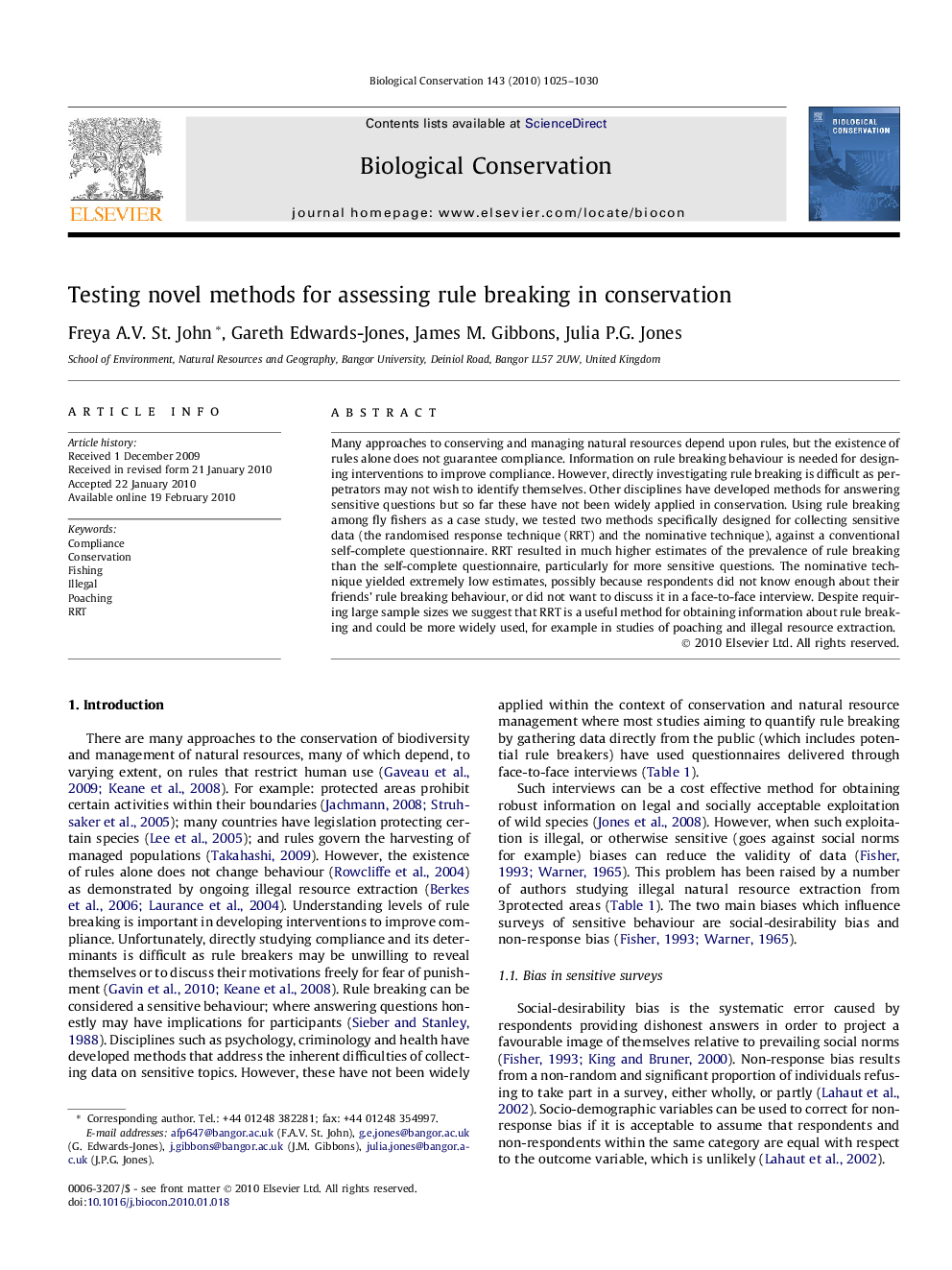| Article ID | Journal | Published Year | Pages | File Type |
|---|---|---|---|---|
| 4385787 | Biological Conservation | 2010 | 6 Pages |
Many approaches to conserving and managing natural resources depend upon rules, but the existence of rules alone does not guarantee compliance. Information on rule breaking behaviour is needed for designing interventions to improve compliance. However, directly investigating rule breaking is difficult as perpetrators may not wish to identify themselves. Other disciplines have developed methods for answering sensitive questions but so far these have not been widely applied in conservation. Using rule breaking among fly fishers as a case study, we tested two methods specifically designed for collecting sensitive data (the randomised response technique (RRT) and the nominative technique), against a conventional self-complete questionnaire. RRT resulted in much higher estimates of the prevalence of rule breaking than the self-complete questionnaire, particularly for more sensitive questions. The nominative technique yielded extremely low estimates, possibly because respondents did not know enough about their friends’ rule breaking behaviour, or did not want to discuss it in a face-to-face interview. Despite requiring large sample sizes we suggest that RRT is a useful method for obtaining information about rule breaking and could be more widely used, for example in studies of poaching and illegal resource extraction.
